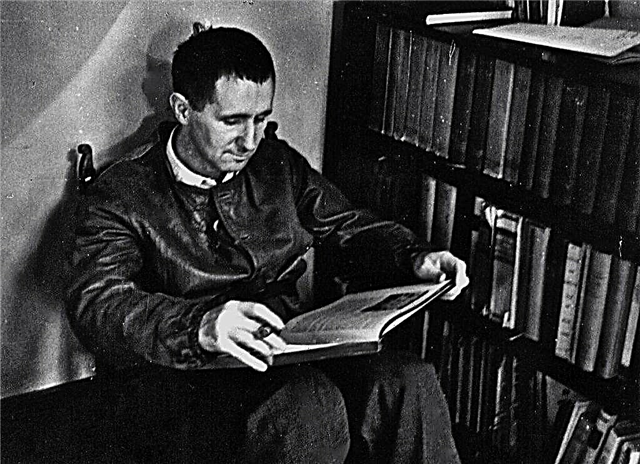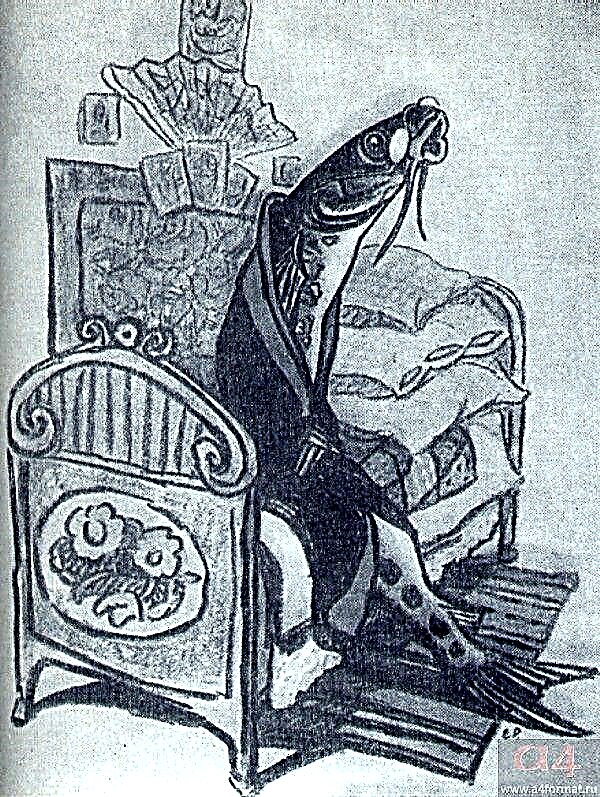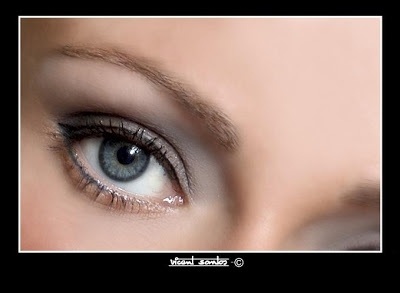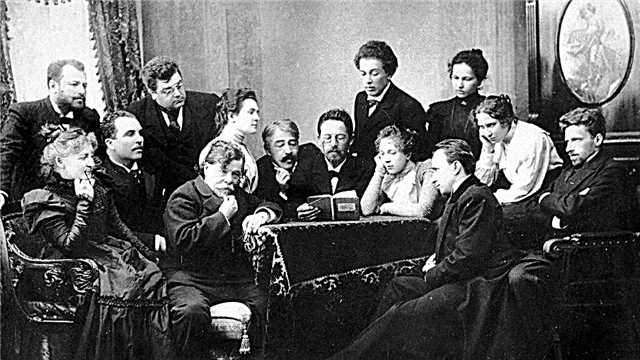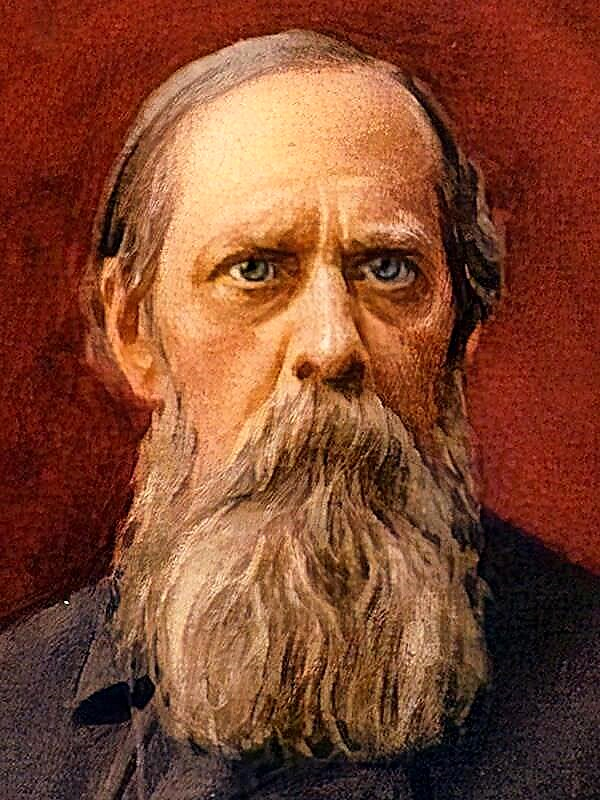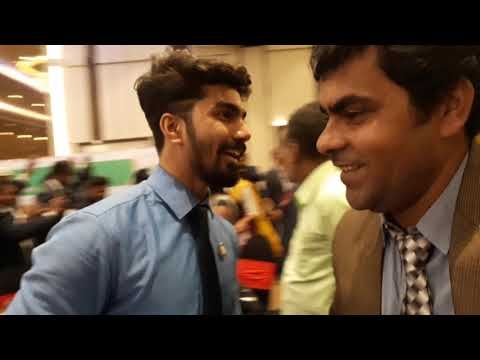: A hero, full of self-criticism, self-irony and sarcasm, talks about the empty and fake glamorous life surrounding him.
The narration is conducted in the first person.
Get Rich or Die Tryin ’
Moscow 2000 years. Sitting in a pathos restaurant with an occasional buddy and almost not listening to that, the nameless hero reflects on his life and characters, fake and insincere. He hates all this rich and show-off audience and himself, which is its integral part. He spends a drunken ugly evening with a casual acquaintance.
In the morning, the hero comes to the office of the company, which he calls Mordor, where he has been working as a top manager for four years. This is a French canned food company. He sarcastically characterizes the activities of personnel as blowing dust in the eyes, and the relations of employees as in a wolf pack. He considers himself a "prostitute", a "satisfying" leadership. He considers the methods of doing business stupid and shovels, directors - an alcoholic, and most employees - redundant and lazy. “Hypocrisy and hypocrisy are the true kings of the world,” the cynical hero concludes. The style of his work is to confuse his subordinates in order to work himself less.
Having given instructions to employees whom the hero considers to be battery-powered androids, he grapples with the financier Garido, with whom he has a long-standing corporate feud, about production problems. Their boss, with poorly hidden gloating, oversees a skirmish of employees: it is customary in the company not to cooperate, but to compete.
After work, the hero goes to a restaurant, not because he is hungry, but because it is customary. He sits down with the barely familiar professional party-goers and takes part in a meaningless conversation. Looking around, he sees empty faces.
And no one here is completely happy with each other, just giving out their emotions is not accepted. If you were to give free rein to our feelings for even a second, you would see exclusively curves from the envy and longing of the muzzle.
Suddenly, the hero meets old party-mate Misha Voodoo - "the embodiment of club culture and night fever style, a man from the first five Moscow club promoters." Rumor has it that he returned from abroad with the goal of starting his own business.
The friends are glad to each other and light up all night. Unlike the empty talk of the party people around, Misha is serious: he decided to open the coolest night club. He and his partner lack money, and the hero is invited to become a co-investor. He promises to think and discuss the idea with a friend.
The hero with the company of Misha rolls into another club, where he is offered to smell cocaine. Suddenly, in a toilet cubicle, with a drug in his hands, FSKN operatives arrest him. The hero was already saying goodbye to freedom when Misha bribes him from the police. In a burst of gratitude, the hero decides to invest in his business. He agrees with Vadim, a top manager with whom he has been friends for seven years, to become Misha co-investors together.
The hero wants to see Julia, whom she has been in love with for a year. Their relationship is platonic, because the hero does not want to spoil their spiritual closeness. Lovers walk on the Patriarch's Ponds, Julia convinces the hero that he is a good man, only tired and “playing with a cynic,” and he should notice a sea of love around him. After dating a girl, he feels better than he thinks about himself.
Friends go to see the future business, where Misha and a companion show them the renovated premises. Vadim decides to invest in the business all the accumulated money. After signing the documents, the hero is in euphoria from the fact that he will soon become rich and famous and will finally do what he loves.
A meeting is held at the head office following the results of the fiscal year.The French leadership and regional representatives are present. According to the hero, all those present are not interested in the success of the company, but in the size of bonus bonuses, especially those of others. And here everyone is envious of Muscovites.
At that moment, a huge ball lightning hung from the general hatred hung in the room ... We can say that hatred is the main engine of our business.
Behind the paper indicators of success are human destinies - in this the hero is very well aware: "I can imagine how many people we have rotted or fired in order to achieve these notorious PLANED INDICATORS."
The hero is super pleased with himself and his professional, albeit not entirely deserved, successes.
The hero spends the evening in a new, just opened club, where everything is like everywhere else: booze, drugs, deafening music, prostitutes, half-acquaintances ... In returning home alone, the hero weeps with longing.
In the morning, tormented by a hangover and self-hatred, he thinks about when he ceased to be a real person and managed to become nothing.
... the space inside the Garden Ring in the evenings [inhabited] by dummy people. Once they were normal people ... but then, at some point, they realized that it was easier to turn into characters in glamorous magazines ...
The hero calls the reality surrounding him and the characters “zone” and “mummies”: “The term of your imprisonment is not known here. Nobody put you here, you ... you chose your own path. The reverse is not expected. " Sometimes it seems to the hero that the head of this “zone” is himself, and the “mummies” are united by a common religion, whose name is SPIRITUALITY. The hero comes to the disappointing conclusions: "If before people solved the global problem - to take place in this life, today their great-great-great-grandchildren solve the problem of how to get into this club and take place tonight ...".
On the weekend, the hero plunges into the alluring world of the Internet, through and through fake, like the real one. He tells how he searched for spirituality among the gray militants on the Web, and as if he even found among admirers of counterculture and modern literature. But, having gone to a couple of meetings with them, he quickly figured out that there was no smell of spirituality here, but “... the goals of all these revolutionaries are as primitive as many other representatives of society. Shoot money, find new drinking buddies ... get drunk with any chick ... ". The hero sadly advises: “If you see an interesting community of people on the Internet ... in no case look for meetings with them in reality. Enjoy from a distance if you don't want new disappointments. ”
In the "Mug" bar, the hero meets with representatives of the underground, with the followers of Limonov - the National Bolsheviks. The loud and empty speeches of adherents about the future proletarian revolution mask quite mundane desires: to communicate, get drunk on a freebie, borrow money without giving back. The hero sarcastically ridicules pseudo-revolutionary loafers who can only criticize the regime, but do not want to work. Young National Bolsheviks are trying to object to him, but soon their military fuse is extinguished and the assembly turns into a booze.
The hero communicates with the leader of the site of the counterculture - drunkard Avdey. He first asks to get him a job, and not seeing a positive response, offers to organize a website promotion business, moreover, with the hero’s money, since Avdei himself is always penniless. Already at the exit, the leader of the National Bolsheviks, who had recently called the hero a "class enemy," was trying to shoot him money for a drink. “Enemy” overtakes another disappointment in life.
In the morning, the hero will fly to St. Petersburg with an audit of the local branch. There is a suspicion that the branch management is stealing money from the company, and it will have to prove or disprove it.
Insomnia
Before boarding the train, the hero meets with Julia and is again embarrassed and fascinated by her, like a schoolboy in love.
On the train, he is angry and annoyed with everything: fellow travelers, food, service, and only a portion of cocaine found in baggage returns him to a good mood. Satisfied with life, he gets off the train. They accept him as a great boss, who he is.
The hero does not like Petersburg because of his depressive atmosphere, dankness and boredom. He speaks ironically about the city and the townspeople: “The main theme of highly spiritual residents of St. Petersburg is fixation on their own significance and features.” Therefore, he is without sentiment refers to the North Palmyra.
The St. Petersburg branch has an atmosphere of idleness, nepotism and theft. In front of the Moscow authorities, they lie and lie a lot. The hero notes the defiant appearance of large distributors and the unfortunate one of small ones. The average sales representatives leave the hero incriminating evidence for the St. Petersburg leadership.
In the evening he meets with his friend Misha - a great original and intellectual.
Perhaps he is the only one of my acquaintances whose communication is not built around the discussion of money, women, parties and business, and lies in the plane of spiritual dialogues.
Heroes are smoking weed to unconsciousness and are talking about spirituality, which St. Petersburg has, but Muscovites do not. In Misha’s understanding “... this cannot be explained, it can only be felt at the level of high matters”. The hero, on the other hand, contradicts his friend and claims that “this is such a semantic link among the Petersburg intelligentsia. Well, you know, like a drunk has a bunch of “fucking” in the yard ... And you substitute “spirituality” instead of “fucking,” which is essentially the same in the essence of the context. ”
Then the friends walk around walking around politics, foreign and domestic, the economy, the national idea, or rather, its absence, social justice ... In a drug addiction, the hero dreams of Russian President Vladimir Putin in the form of Batman, fatherly blaming him for smoking anasha.
The next morning, the hero dines with the St. Petersburg branch director Gulyakin. They meet in the cafe “USSR” with the corresponding Soviet style, and the hero reflects on how the St. Petersburg people like to remember and not to remember their fellow countryman - the current president Putin.
Peter has embraced Magnet Syndrome, as I call it. Almost every Petersburger is trying to attract himself (directly or indirectly, through the city) to Putin.
The hero accuses Gulyakin of stealing and promises to report this to the French leadership. St. Petersburg is brave, unlocks, but nevertheless confesses and offers the hero a bribe. Moskvich refuses money, but calls not to steal anymore and offers in the future to return him a debt with a service.
Gulyakin reproaches the hero for not resembling those around him, living differently from everyone, and humiliating people who know how to work. In response to the accusations, the hero expresses his position in life: “... I live here, I work here, .. I love women, .. have fun. And I don’t want to go anywhere, I want all this (an honest and comfortable life) to be here in Russia ... I don’t want to live in a world where everything happens “because it should be so.” And I do not want to be like you ... ".
In the Onegin club, the hero and his friend Vadim are important as Muscovites, send and be rude to others, sniff cocaine and get drunk. In a fit of melancholy, he calls Julia in Moscow, and she comforts him. Having talked with her, the hero no longer feels alone, cheers up and the evening ends in a drunken and narcotic intoxication.
In the morning, the hero reads SMS from Julia and is ashamed of his hypocrisy and cynicism. He replies to her with a sensed message.
It seems to me that the scales swayed. And that cup of them, filled with pieces of good, with fragments resting somewhere deep in me, went down, outweighed all my nastiness that seemed dominant until tonight.
The hero’s conscience does not last long for the hero and, remembering the atmosphere surrounding him, he comes to the negative conclusion: “I don’t believe anyone, I’m afraid of everyone ... I’m deceiving everyone, everyone is deceiving me. We are all hostages of our own lies ... ”
On the way home on the train, the hero sadly nostalgic for his beautiful youth, comparing it with a terrible present. He philosophically summarizes the results of the activities of his generation of 30-year-olds, believing that they will write on his mass grave: “To the generation of the 1970-1976 birth, such a promising and such promising one. Whose start was so bright and whose life was so ineptly wasted. May our dreams of a happy future rest in peace, where everything should have been different ... ”
The hero meets Julia in a cafe. Due to her lateness, her jealousy and irritation, he is filled with unmotivated aggression. Accuses her friend of naivety, lies and unnecessary interference in his life. Neither does he spare himself: “I am a pea jester, ready to mock at everyone, including myself. Since childhood, I quickly get tired of toys, immediately give me something new. I waste my life with this daily pursuit of entertainment. I’m running on my own, I’m bored, sick and disgusted with myself. ” Calls her to run away from him without looking back, until she is bogged down with her head in the vile swamp of his life. Julia leaves, and the hero disgusts himself and regrets that he destroyed the best that he had.
At the exit from the club he is beaten by homeless people and a police squad saves him. In one of the police, he recognizes an operative from the STC who arrested him a week earlier. Suspicion covers him.
The next day - the opening of a night club, co-owners of which he and Vadim and Misha Voodoo. Misha's phones do not answer, and anxious friends come to the club. They are surprised by the lack of festive decoration and some kind of deserted room. The club is closed, and friends understand that the "partner" Misha cheated and robbed them. Vadim falls into hysteria, accuses his friend of frivolity and irresponsibility, and leaves.
The hero goes to the club, gets drunk and sniffs cocaine. He feels bad from all the failures that have piled up at once, and he wants to forget himself.
People, I feel bad. I feel terrible. You don `t see? I'll die here now. I will die from your indifference and emptiness. Hey somebody, talk to me! You hear? - I yell into the hall, raising both hands up.
In a drunken stupor he beats a homosexual who has molested him.
On Sunday morning, the hero suffers from a hangover and depression. He thinks it would be more sensible to spend the day off, but he understands that he has no one to call, and nobody wants to because of the emptiness of the surrounding characters. He leafs through glamorous magazines, looks through invitations to clubs and his photos from there - it seems to him that he sees empty white sheets. Suddenly, Julia calls him and asks to meet her from the trip a few days later. Overjoyed, he asks her forgiveness, and the girl promises not to remember evil.
The hero meets with Vadim in a cafe. He hysterically seeks a way out of the trap into which he fell, having lost the money of the company, and offers his friend a scam to recover damage. He encourages a friend to think again, forget everything and continue to live on, without deceiving anyone. Angry Vadim suspects him of having connections with scammers and threatens with problems.
Realizing that he lost a friend, the hero goes to the station, gets into a random train and falls asleep. He dreams a phantasmagoric dream with the participation of semi-familiar characters who pursue him.
And then I have a complete sensation of a vicious circle and some stupid, but at the same time terrible misconduct that I committed.
Having woken up, he leaves at an unfamiliar station, sits in a forest glade, examines the corpse of a rat and associates the glamorous party of Moscow with it.
The hero loses his cell phone, gets up on the bridge and for the first time in many years admires the wonderful forest scenery illuminated by the rising sun. Before him, as in a kaleidoscope, pictures of his own life run through, filled with emptiness and falsehood. Looking at the rising sun, the hero wants his fire to never go out.



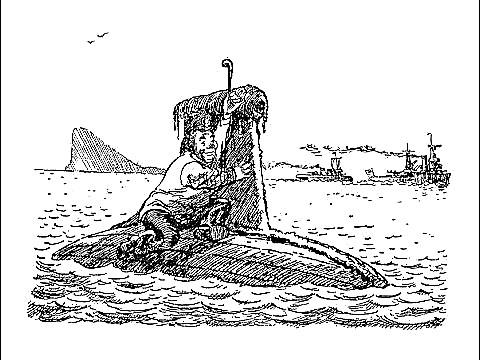
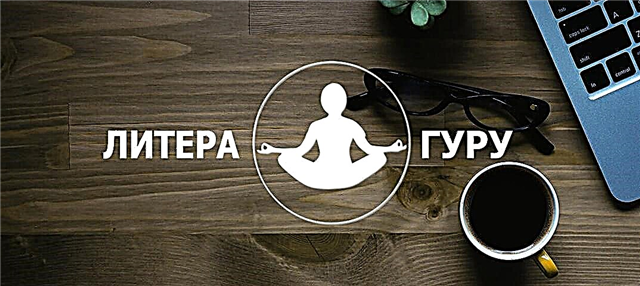
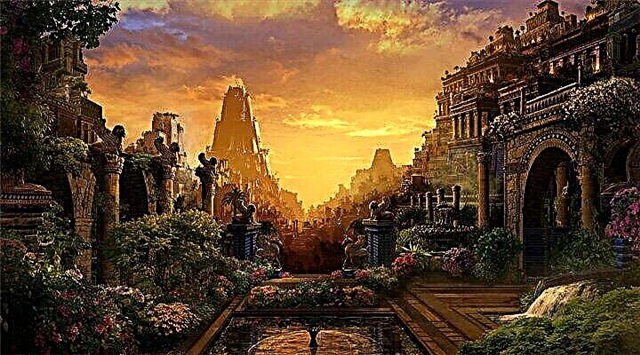 The richest man in Babylon
The richest man in Babylon